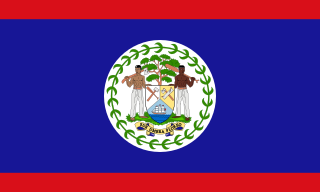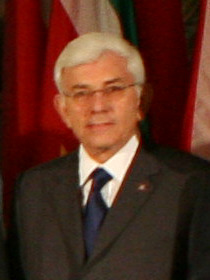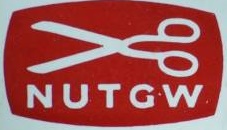Related Research Articles

Belize is a Central American country on the north-eastern coast of Central America. It is bordered by Mexico to the north, the Caribbean Sea to the east, and Guatemala to the west and south. It also shares a water boundary with Honduras to the southeast. It has an area of 22,970 square kilometres (8,867 sq mi) and a population of 441,471 (2022). Its mainland is about 290 km (180 mi) long and 110 km (68 mi) wide. It is the least populated and least densely populated country in Central America. Its population growth rate of 1.87% per year is the second-highest in the region and one of the highest in the Western Hemisphere. Its capital is Belmopan, and its largest city is the namesake city of Belize City. Belize is often thought of as a Caribbean country in Central America because it has a history similar to that of English-speaking Caribbean nations. Indeed, Belize's institutions and official language reflect its history as a British colony.

Politics of Belize takes place in a framework of a parliamentary representative democratic monarchy, whereby King Charles III serves as head of state and the prime minister is the head of government, and of a multi-party system. Executive power is exercised by the government. Legislative power is vested in both the government and the Parliament of Belize.

British Honduras was a Crown colony on the east coast of Central America, south of Mexico, from 1783 to 1964, then a self-governing colony, renamed Belize in June 1973, until September 1981, when it gained full independence as Belize. British Honduras was the last continental possession of the United Kingdom in the Americas.

Said Wilbert Musa is a Belizean lawyer and politician. He was the Prime Minister of Belize from 28 August 1998 to 8 February 2008.

George Cadle Price was a Belizean statesman who served twice as the head of government of Belize from 1961–1984 and 1989–1993. He served as First Minister and Premier under British rule until independence in 1981 and was the nation's first prime minister after independence that year. He is considered to have been one of the principal architects of Belizean independence. Today he is referred to by many as the "Father of the Nation". Price effectively dominated Belizean politics from the early 1960s until his 1996 retirement from party leadership, serving as the nation's head of government under various titles for most of that period.

The People's United Party (PUP) is one of two major political parties in Belize. It is currently the governing party of Belize after success in the 2020 Belizean general election, winning a majority of 26 seats out of 31 in the Belizean House of Representatives. It is a centre-left Christian democratic party. The party leader is Johnny Briceño, who currently serves as the Prime Minister of Belize.

The Workers' Socialist Federation was a socialist political party in the United Kingdom, led by Sylvia Pankhurst. Under many different names, it gradually broadened its politics from a focus on women's suffrage to eventually become a left communist grouping.

The National Union of Seamen (NUS) was the principal trade union of merchant seafarers in the United Kingdom from the late 1880s to 1990. In 1990, the union amalgamated with the National Union of Railwaymen to form the National Union of Rail, Maritime and Transport Workers (RMT).
The National Minority Movement was a British organisation, established in 1924 by the Communist Party of Great Britain, which attempted to organise a radical presence within the existing trade unions. The organization was headed by longtime unionist Tom Mann and future General Secretary of the CPGB Harry Pollitt.
Antonio Soberanis Gómez was an activist in the Belizean labour movement. He found the Labour and Unemployed Association in 1934 to demand poverty relief work and a minimum wage. He was jailed for sedition in 1935.

General elections were in Belize on 30 October 1974. Belizeans elected 18 members to the House of Representatives. The elections were the first since the country was officially renamed from British Honduras in 1973.

Philip Stanley Wilberforce Goldson was a Belizean newspaper editor, activist and politician. He served in the House of Representatives of Belize as member for the Albert constituency from 1965 to 1998 and twice as a minister. Goldson was a founding member of both of Belize's current major political parties, the People's United Party (PUP) in the 1950s and the United Democratic Party (UDP) in the 1970s. He was also the leading spokesman of the hardline anti-Guatemalan territorial claims National Alliance for Belizean Rights party in the 1990s.
Nicholas Anthony Ignatius Pollard Sr. was a Belizean politician and trade union leader.

The History of Belize dates back thousands of years. The Maya civilization spread into the area of Belize between 1500 BC to 1200 BC and flourished until about 1000 AD. Several Maya ruin sites, including Cahal Pech, Caracol, Lamanai, Lubaantun, Altun Ha, and Xunantunich reflect the advanced civilization and much denser population of that period. The first recorded European incursions in the region were made by Spanish conquistadors and missionaries in the 16th century. One attraction of the area was the availability of logwood, which also brought British settlers.

The National Union of Tailors and Garment Workers (NUTGW) was a trade union in the United Kingdom.
Elfreda Reyes was a labor organizer, suffragette, women's rights activist and political activist during the British Honduran struggle for independence from Great Britain. She helped found the Jobless Workers Union and pushed for labor reforms, including wage and hour laws, as well as the Women’s League, which fought for social, economic and political empowerment of women.

The Nationalist Movement seeking independence for Belize first arose in the 1930s and 1940s. Three groups played important roles in developing the movement. One group consisted of working-class individuals and emphasised labour issues. This group originated with Antonio Soberanis Gómez and the Labourers and Unemployed Association (LUA) between 1934 and 1937 and continued through the General Workers Union (GWU). The second group, a radical black nationalist movement, emerged during World War II. Its leaders came from the LUA and the local branch of Marcus Garvey's Universal Negro Improvement Association (UNIA). This group called itself variously the British Honduras Independent Labour Party, the People's Republican Party, and the People's National Committee. The third group consisted of people such as the Christian Social Action Group (CSAG) who engaged in electoral politics within the narrow limits defined by the constitution. From the 1950s onwards the nationalist movement came to be dominated by the People's United Party which led the country to independence in 1981.
Trade unions in The Gambia are regulated under the Labour Act 2007. The first trade union was the Bathurst Trade Union (BTU), founded in 1929, which led a general strike that year. General strikes were also led by the Gambia Workers' Union (GWU) in 1960, 1961, 1967, and 1970, although not all were successful. There are three trade union centres in The Gambia: the Gambia Trade Union Bureau (GamTUB), the Gambian Workers' Confederation (GWC), and the Gambia National Trade Union Congress (GNTUC). The country joined the International Labour Organization (ILO) in 1995.
The Christian Democratic Union (CDU) was a general union in Belize.